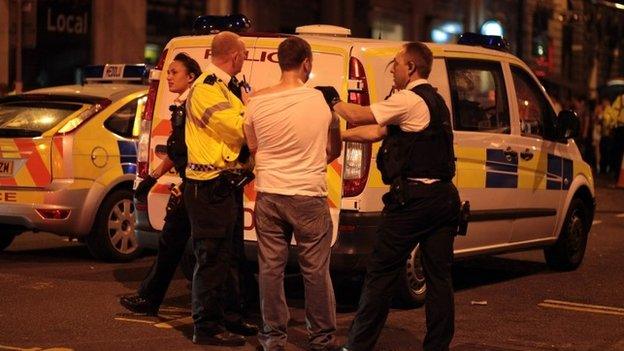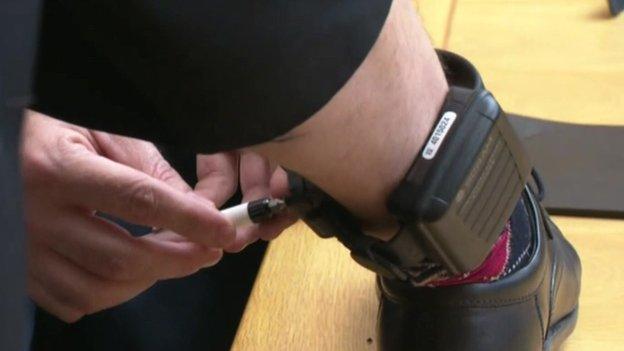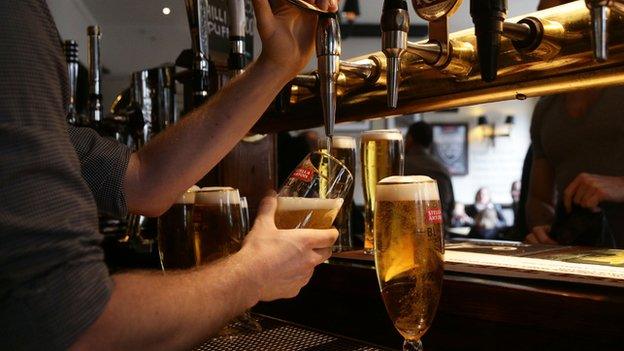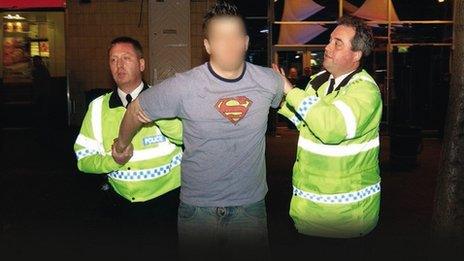'Sobriety tag' scheme to be extended for six months
- Published

The Met commissioner says around 80% of evening arrests are alcohol-related
A pilot scheme in south London in which offenders wear ankle tags that monitor alcohol levels is to be extended for a further six months.
The Mayor's Office for Policing and Crime (MOPAC) also said it was "working closely" with government to roll out the scheme more widely.
Mayor of London Boris Johnson described the scheme as a "fantastic success".
The Prison Reform Trust said: "The real test will be whether sobriety bracelets lead to long term desistance."
Under the scheme, courts can ban offenders who have committed alcohol-related crimes from drinking.
Those subject to the abstinence orders wear ankle tags which monitor alcohol levels in their sweat every 30 minutes.

The tags detect alcohol levels in the wearer's sweat
If alcohol is detected the offender can be returned to court to face further sanctions such as a fine or resentencing.
The 12-month trial began in July 2014 in four London boroughs - Croydon, Lambeth, Southwark and Sutton.
MOPC reported that 91% of those ordered to wear the tags had complied, compared with a 61% compliance rate in other types of community order.
Nine people have been returned to court and convicted of breaching the abstinence orders.
'Unproven technology'
Mr Johnson said: "Sobriety tags have proved a fantastic success in helping offenders across south London to stay off the booze and avoid the circumstances under which they might reoffend."
He was backed by Justice Minister Andrew Selous, who hailed the results as "very encouraging".
Labour's policing spokesperson in the London Assembly, Joanne McCartney, welcomed the results of the trial but cautioned: "It is only based on a tiny number of cases."
She stressed the need to avoid "tried and tested policing methods being replaced by unproven technology".
Juliet Lyon, director of the Prison Reform Trust, praised MOPC's early findings as "positive", but added: "The real test will be whether sobriety bracelets lead to long term desistance once the bracelet is taken off."
In March, Metropolitan Police Commissioner Sir Bernard Hogan-Howe said 80% of night-time arrests in London were to do with alcohol.
- Published31 July 2014

- Published17 March 2012
